In any normal compiler for C or C++, variable length arrays are working normally but in Visual Studio Community 2019, VLAs are not working. How can i in any way use Visual Studio as an IDE (becasue i like it's features) and still have VLAs in C and C++
I tried to change the compiler it uses. I tried to locate the migwin compiler but couldn't do it. All online tutorials differ from what i see in the latest version of Visual Studio 2019.
int n;
cin>>n;
int arr[n]; // This line gives an error
int arr[n]; //This line should work in Visual Studio 2019. It doesn't matter what compiler it uses. Just I need to make this thing work in VS Community 2019 because i want to use it as an IDE.
